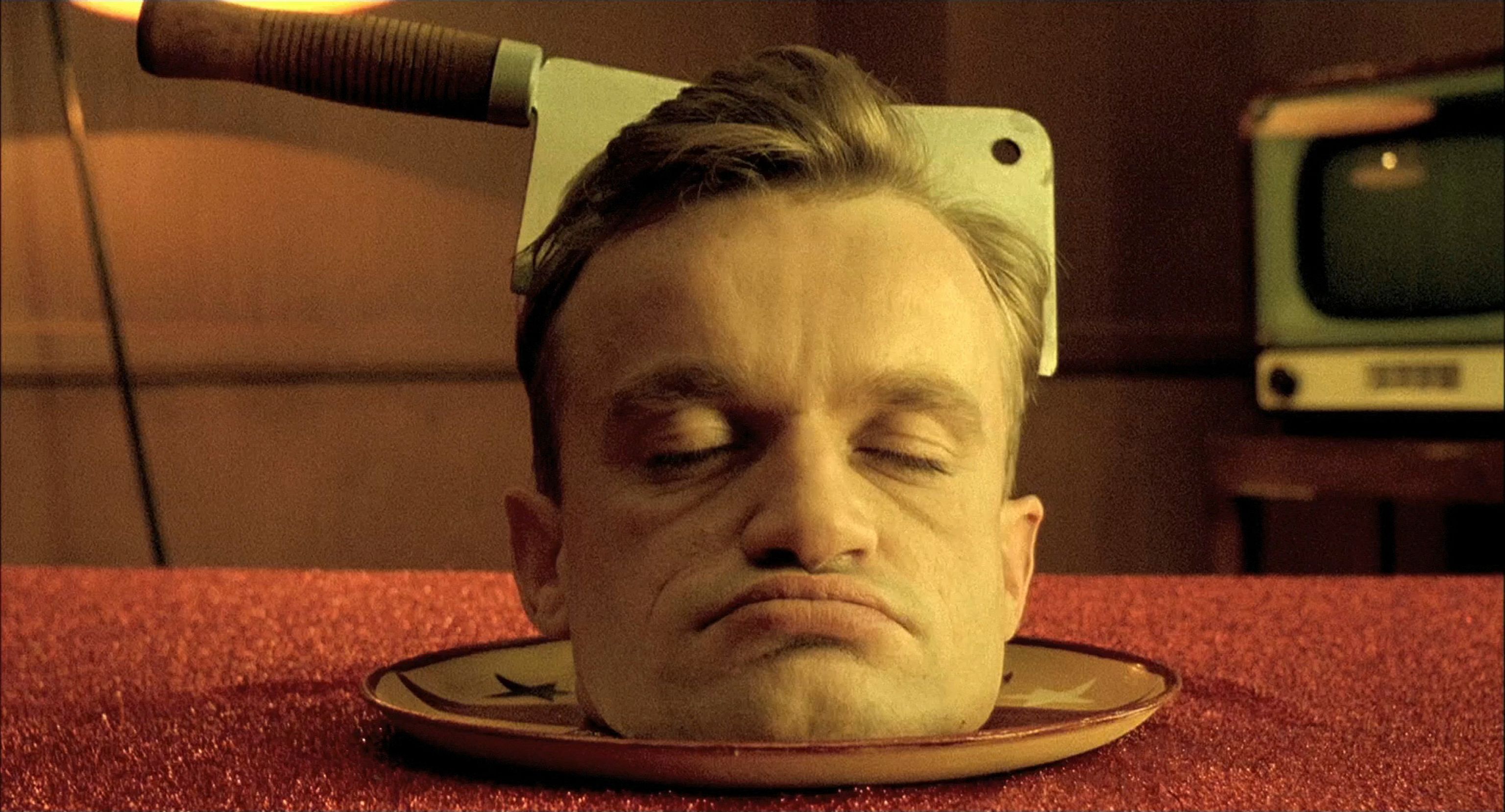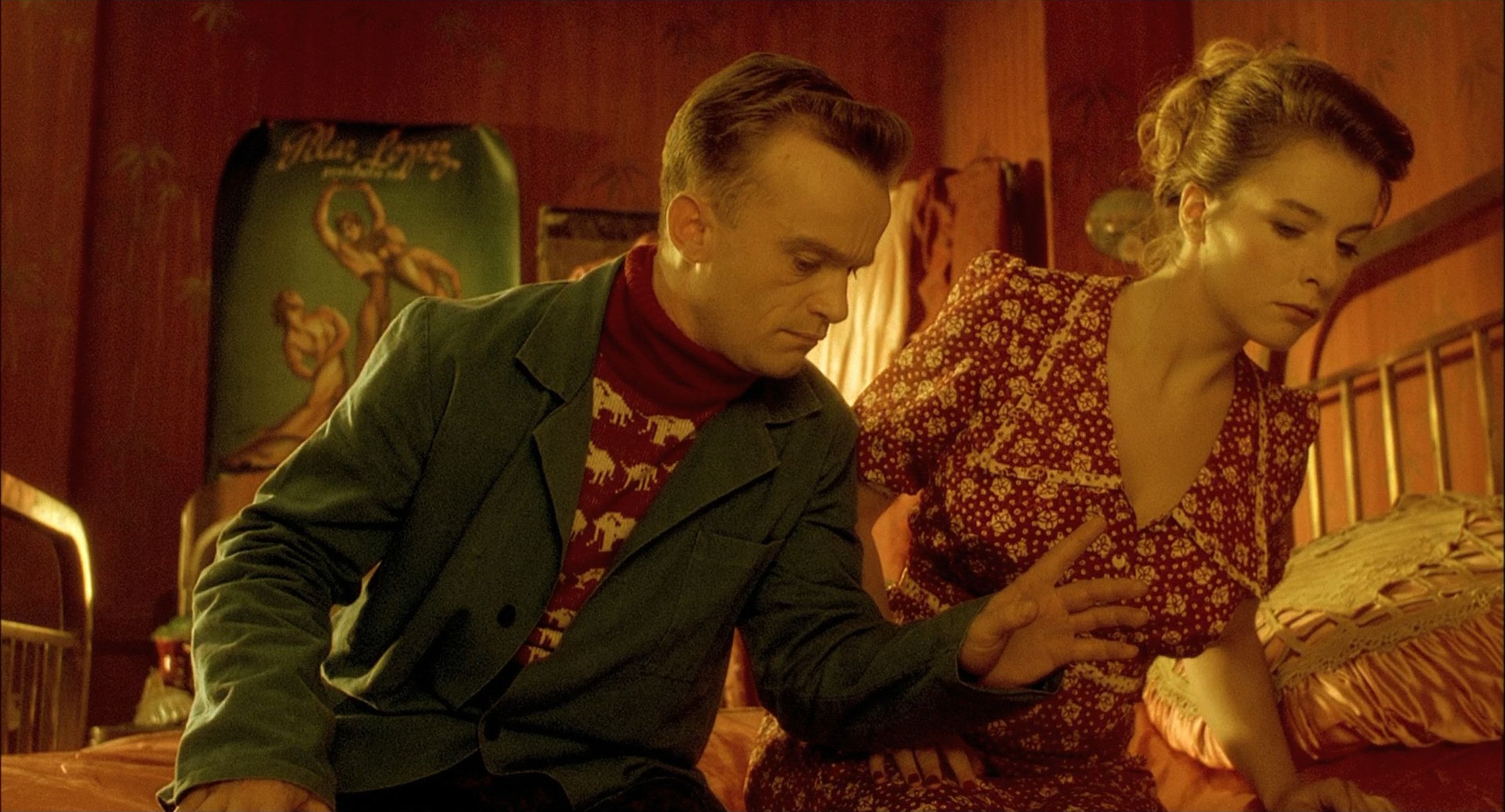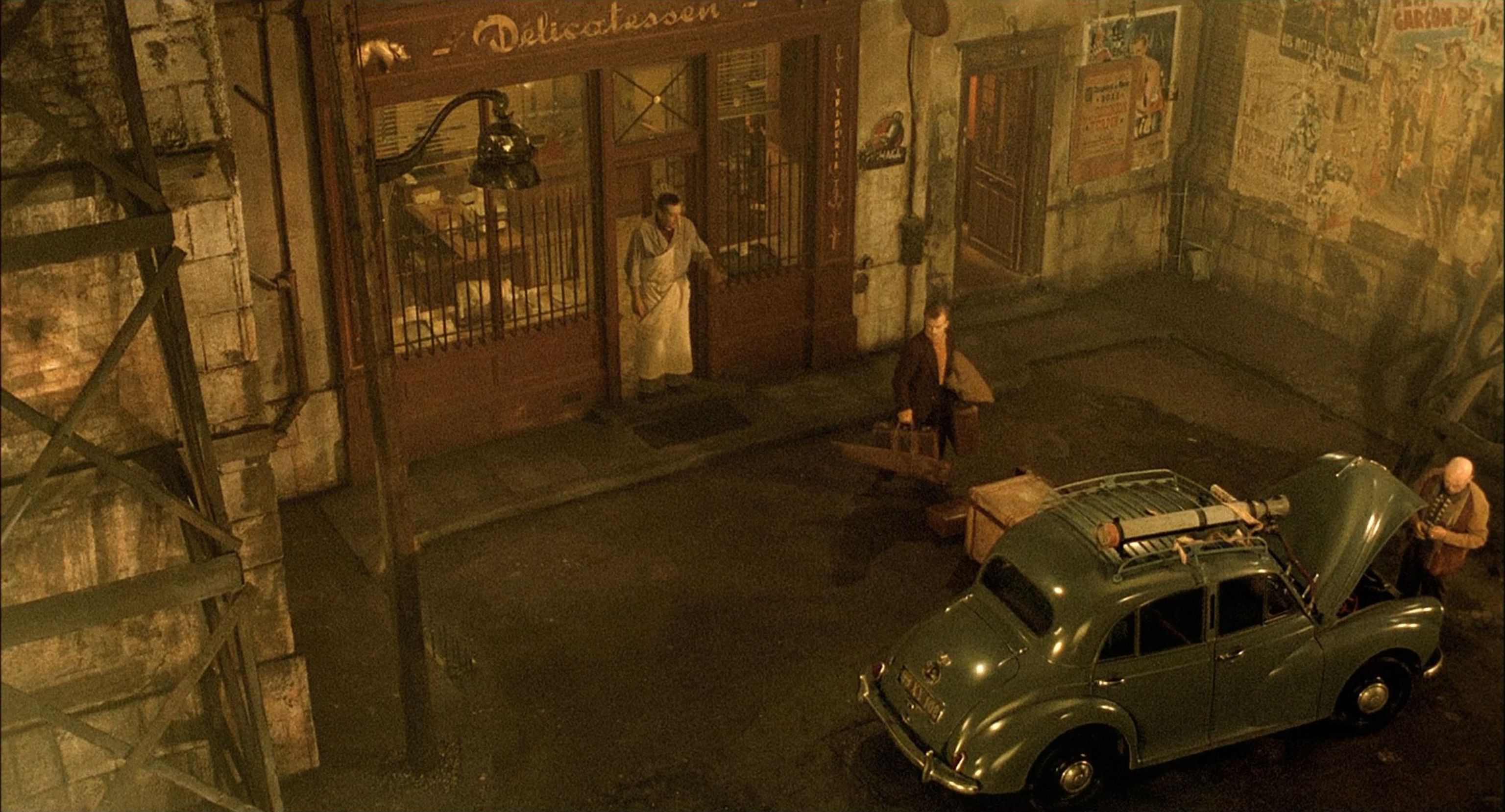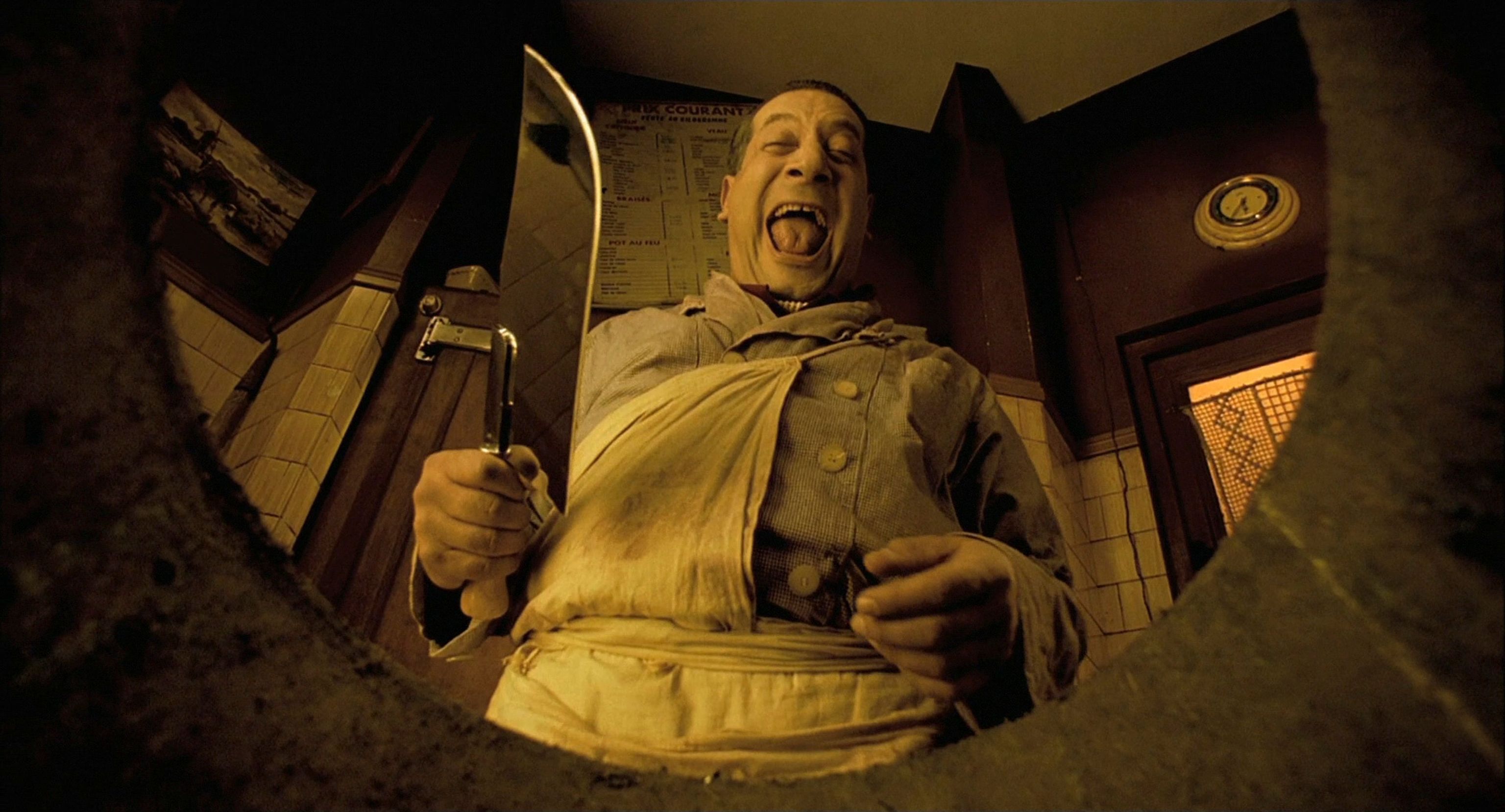Jean-Pierre Jeunet & Marc Caro
Delicatessen
- DirectorJean-Pierre Jeunet & Marc Caro
- CinematographerDarius Khondji
KASPER TUXEN Darius Khondji is my biggest inspiration as a cinematographer, especially his work in the ’90s set me off. The boldness and decisiveness of Delicatessen (along with The City of Lost Children and Se7en) were the benchmarks I aimed for in the years leading up to and during film school.

Storyline
Delicatessen is a surreal black comedy set in a grim, post-apocalyptic France where food is scarce and society has collapsed. The story unfolds in a dilapidated apartment building owned by a butcher, Clapet, who runs a delicatessen shop on the ground floor. To keep his tenants fed, Clapet lures in unsuspecting victims under the pretense of offering them work, only to butcher them and serve them as meat.
The film’s protagonist, Louison, is a former circus clown who answers Clapet’s ad for a handyman job. Though seemingly marked as the next victim, Louison befriends the tenants and gradually falls in love with Julie, Clapet’s shy daughter. As their romance blossoms, Julie grows increasingly horrified by her father’s murderous trade and seeks help from an underground vegetarian resistance group called the Troglodistes. The Troglodistes’ attempt to rescue Louison is chaotic and darkly comic, but in the end, Louison and Julie manage to outwit Clapet and his tenants. The film closes with the couple playing music together on the rooftop, offering a fragile but hopeful contrast to the bleak world below.
Story behind the film
Directorial Debut: Delicatessen was the feature debut of Jean-Pierre Jeunet and Marc Caro, who had previously worked together on visually inventive shorts and design projects. Their background in animation and comics heavily influenced the film’s quirky, highly stylized aesthetic.
Production Style: The directors combined elements of slapstick comedy, macabre horror, and surrealism. Caro oversaw much of the visual design (costumes, sets, art direction), while Jeunet focused on actors and storytelling. Their collaboration created a distinctive visual language full of exaggerated characters, sepia tones, and mechanical contraptions.
Low Budget, High Creativity: Made on a modest budget compared to Hollywood films, it showcased inventive set design and camera work rather than expensive effects. The entire story is contained mostly within the apartment building, giving it an intimate yet claustrophobic feel.
Reception: Released in 1991, Delicatessen was a critical and commercial success in France and internationally. It won César Awards for Best Debut and Best Screenplay, and established Jeunet and Caro as visionary filmmakers. The film gained cult status for its originality and would pave the way for their next, more ambitious project: The City of Lost Children (1995). Jeunet later went on to direct Amélie (2001), bringing some of the same visual inventiveness to a very different kind of story.
Darius Khondji & Delicatessen
Delicatessen was one of the films that first brought Darius Khondji, an Iranian-French cinematographer, to international attention. His work gave the movie its distinctive, sepia-tinted, surreal look, which became a visual signature for directors Jean-Pierre Jeunet and Marc Caro. Khondji used low-key lighting, desaturated colors, and heavy use of greens, yellows, and browns to evoke a world both decayed and dreamlike. The interiors of the crumbling apartment building were often shot with wide lenses and unusual camera angles, creating a warped, claustrophobic sense of space, perfectly matching the film’s mix of dark comedy and dystopia.







